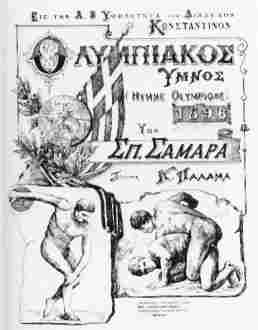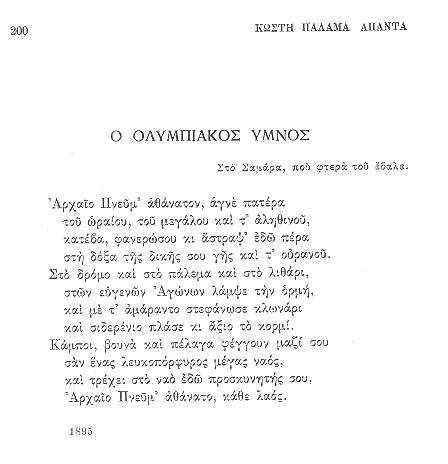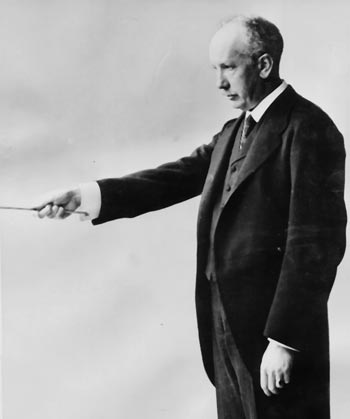


The Winter Olympic Games are a winter multi-sport event held every four years. They feature winter sports held on snow or ice, such as Alpine skiing, cross-country skiing, figure skating, bobsledding and ice hockey. Cross-country skiing, figure skating, ice hockey, Nordic combined, ski jumping, and speed skating have been competed at every Winter Olympics since 1924. Other athletic events have been added as the Games have progressed. Some of these events, such as luge, short track speed skating, and freestyle skiing have earned a permanent spot on the Olympic programme. Others, like speed skiing, bandy, and skijöring have been demonstration sports but never incorporated officially as an Olympic sport.
Fewer countries participate in the Winter Olympics than the Summer Olympics. The first Winter Olympics were held in Chamonix, France in 1924. Prior to this, figure skating and ice hockey had been events at the Summer Olympics. The Games were held every four years from 1924 until 1940 when they were interrupted by World War II. The Winter and Summer Games resumed in 1948 and were celebrated on the same year until 1992. At that time the Winter Games split from the Summer Games, and were begun to be celebrated on alternating even years. The first Winter Olympic Games to be held on this new schedule was in 1994 in Lillehammer, Norway.
The Winter Games have undergone significant changes since their inception. The rise of television as a global medium for communication has greatly enhanced the profile of the Games. It has also created an income stream in the form of the sale of broadcast rights and advertising, which has become very lucrative for the International Olympic Committee (IOC). This has allowed outside interests, such as television companies and corporate sponsors, to influence various aspects of the Games. The IOC has had to address several internal scandals, and the use of performance enhancing drugs by Winter Olympic athletes. One country has boycotted the Winter Olympics. The Winter Games have also been used by countries to demonstrate the claimed superiority of their political systems.
The Winter Olympics have been hosted in three continents, but never in a country in the southern hemisphere. The United States has hosted the Games four times, more than any other country. France has been host three times. Austria, Canada, Italy, Japan, Norway, and Switzerland have hosted the Games twice. The next Games will be hosted by Sochi, Russia in 2014. This will be the first time that Russia will host the Winter Olympic Games.
Olympic Hymn

The Olympic Hymn (Greek: Ολυμπιακός Ύμνος, Olympiakós Ýmnos), also known informally as the Olympic Anthem, is a choral cantata by opera composer Spyridon Samaras, on lyrics by Greek poet Kostis Palamas.
Both poet and composer were the choice of Demetrius Vikelas, a great Greek Pro-European and the first President of the International Olympic Committee.
[edit] History
The anthem was performed for the first time for the ceremony of opening of the first edition at the 1896 Athens Olympic Games. In the following years every hosting nation commissioned to various musicians the composition of a specific Olympic hymn for their own edition of the games. This happened up to the edition at the 1960 Summer Olympics in Rome.
The Anthem by Samaras and Palamas was declared the official Olympic Anthem by the International Olympic Committee in 1958 at the 55th Session of the IOC in Tokyo. Since 1960, it has been used at the Opening Ceremonies of each Olympic Games.[1]
[edit] Languages in which anthem was performed
The anthem has been recorded and performed in many different languages, usually as a result of the hosting of either form of the Games in various countries. The IOC requires that the anthem be performed in either English or Greek.[2]
At the Montreal Olympics in 1976, the Olympic Anthem was sung by a men's choir named Orpheus. The anthem was sung in Greek.
[edit] English
- Lake Placid 1980
- Los Angeles 1984
- Atlanta 1996
- Sydney 2000 (closing ceremony only)
- Salt Lake 2002
[edit] French
[edit] German
[edit] Japanese
[edit] Norwegian
[edit] Russian
[edit] Serbo-Croatian
[edit] Spanish
- Mexico City 1968
- Barcelona 1992 (closing ceremony only)
[edit] Catalan
- Barcelona 1992 (opening ceremony only)
[edit] Greek Performances
For the 2000 Summer Olympics in Sydney, the hymn was recorded and performed in Greek by the Greek Orthodox Archdiocese of Sydney with the Sydney Symphony during the opening ceremony, in recognition of the substantial Greek population of Australia. In addition to its appearance at Athens 2004, the decision was also made to use a Greek arrangement at the 1988 Winter Olympics at Calgary, Alberta, Canada and at the 2008 Summer Olympics in Beijing.
[edit] Combination of Different Languages
At the 2010 Winter Olympics in Vancouver, Canadian opera singer Measha Brueggergosman sang the hymn in a mix of English and French during the opening ceremony, to reflect Canada's official languages,[2] which are also the official languages of the Olympic movement.

The Lyrics
| Original Greek | Transliterated into Latin alphabet |
|---|---|
|
|
| English translation (literal) | English translation (free) |
|
|
| English sung version | |
|
|
| Note: This version, although often performed at opening/closing ceremonies, appears to enjoy far less exposure than the original. Hence its words may be determined only by listening to performances; correspondents will most probably disagree on the correct form. An alternate ending to the lyrics (used at the opening ceremony of the Los Angeles 1984 Olympics) was, "Bestow on us the wondrous prize of honor, truth and love". | |
Source:
Click these links and sing (or at least hum) along:





Richard Strauss 1936 Olympic Hymn Historic Video
http://www.youtube.com/watch?v=xD5QxPXTN_4

Olympic Anthem (Russian version) played at the Moscow Olympics in 1980. It will be sung at the 2014 Winter Olympics in Sochi, Russia.



--
Together, we can change the world, one mind at a time.
Have a great day,
Tommy
__._,_.___

No comments:
Post a Comment